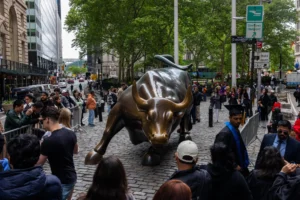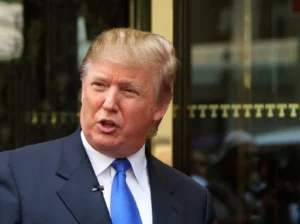How these managers deal with high valuations and the risks associated with this category of company
By Harlet Jonson | Dec 05, 2024 Updated 10:01 a.m. ET
In October foreign institutional investors pulled an estimated $11.5 billion from Indian stocks as one of the world’s top performing markets of recent years hit a bit of a speed bump.
Up until that point, small and mid-cap stocks had performed particularly strongly during the latest leg of the Indian rally, so Shares has canvassed some UK-based fund managers which focus on this area of the market to see how they are managing the risks and opportunities they are facing into.
Over the past year the MSCI India Mid Cap index has returned 33.5% to investors compared to 26% from the broad-based MSCI India index.
The mid cap grouping includes 65 constituents and covers approximately 15% of the free float-adjusted market capitalisation in India.
The Nifty Smallcap 250 Index (which consists of 250 small-cap companies listed on India’s National Stock Exchange) returned 35.1% to investors over the past 12 months.
WHAT IS THE BACKDROP?
The dust has settled for India politically with prime minister Narendra Modi being elected for a third term in June 2024, albeit with a narrowed majority which could impact his ability to deliver reform.
James Thom and Rita Tahilramani investment managers at Abrdn New India Investment Trust (ANII) say: ‘India remains one of the world’s fastest-growing major economies, supported by a resilient macro backdrop. Growth momentum is driven by supportive central government policies following a decade of painful, but necessary economic reforms.
‘In July 2024, the new coalition government’s first budget indicated fiscal consolidation was on track, with robust capex allocation for infrastructure development, while efforts were made to address consumption, rural demand, and employment.’
Thom and Tahilramani acknowledge the recent volatility: ‘We have seen a pullback in the equity market, driven by various factors including a rotation into China and the outcome of the US presidential election. We expect the softness to remain for the next couple of quarters, but our base case is that the growth returns sometime in 2025.’
DOMESTIC INFLOWS FROM INVESTORS AND HIGH VALUATIONS
While overseas money has been moving out of India, domestic investors are ploughing cash back in and investing in local SMEs (small and medium-term enterprises), start-ups and early-growth stage businesses.
Also in October, Indian equity markets experienced inflows of $12.8 billion from domestic institutional investors, according to data from Ashoka India Equity Investment Trust (AIE).
‘Investors must not be distracted by the issue of high valuations’ says Ayush Abhijeet, investment director at Ashoka India.
Ashoka’s Abhijeet says: ‘When thinking about investing in India [it is important] to look at the company’s earnings growth, and whether [the company’s earnings growth] support the valuations.’
Abhijeet goes on to contextualise the outflows of foreign investors’ cash in October and early November saying this sum is relative if taking into consideration historic outflows, for example $15.4 billion at the time of the global financial crisis or $10.6 billion at the time of the Covid pandemic.
Guarav Narain is principal adviser to the fund, he told Shares: ‘Many small and mid-caps are growing faster than large caps. The number of new companies listing in India is growing so there is plenty of investment choice for professional portfolio managers.’
India Capital Growth Fund (IGC) is a fund primarily weighted towards small cap stocks at 41.6%, mid-caps at 39.5% and finally large caps at 15.3%.
Ashoka’s Abhijeet sees potential in the consumer discretionary, healthcare, technology, industrials, and financial services sectors.
‘We tend to pick companies which have strong governance and are not heavily regulated. We also pick companies with less exposure to macro variables, for example, the oil price. That’s not to say we don’t pick these companies, but we may just be underweight in them.’
Top contributors to Ashoka’s performance for the year ending 30 June are Azad Engineering (AZAD:NSE) which makes highly engineered precision and machined components for companies in sectors such as defence and energy; the private sector bank ICICI (IBN:NYSE) and CG Power (CGPOWER:NSE).
For Ewan Thompson fund manager at Liontrust India Fund (B1L6DV5), which does not have a much of a small and mid-cap skew but still invests in this part of the market, ‘the most attractive sectors would be industrials and consumer/healthcare. The former often allows for well-run companies that have developed a niche in the market or have specific technology to grow rapidly and capture share.’
Among the names held by the fund is ASK Automotive (ASKAUTOLTD:NSE), India’s leading manufacturer of advanced braking systems and precision-engineered components for the two-wheeler auto market in India.
HOW DO MANAGERS MITIGATE THE RISKS?
Investing in emerging markets is typically seen as being towards the higher end of the risk spectrum, thanks to issues around governance, the ability to buy and sell shares and political risks, and arguably these risks are even higher the further down the market value spectrum you go.
Companies are likely to be early stage and therefore lack long-term performance history and they could have a lack of transparency in the way they do their accounting.
For Liontrust India’s Ewan Thompson balance sheet weakness is a big risk for him which can either ‘leave companies vulnerable to short-term economic volatility or leave them unable to invest appropriately to capture the market and grow to significant scale’.
‘Over the long-term, small cap stocks offer one of the most direct routes to access India’s exceptionally strong economic growth profile over the next decade – providing an opportunity to benefit from significant increases in market share across huge and rapidly expanding end markets,’ adds Thompson.
Ashoka’s Abhijeet says [with his investment trust] he has a system in place to mitigate risk which means he doesn’t operate a concentrated portfolio or single large stock position.
‘We also carry out our due diligence on each company we decide to invest in. We have a team of 32 on the ground professionals in India.
‘Last year we carried out over 3,000 meetings with companies we were likely to invest and met with suppliers, distributors, and factories.’










Be First to Comment